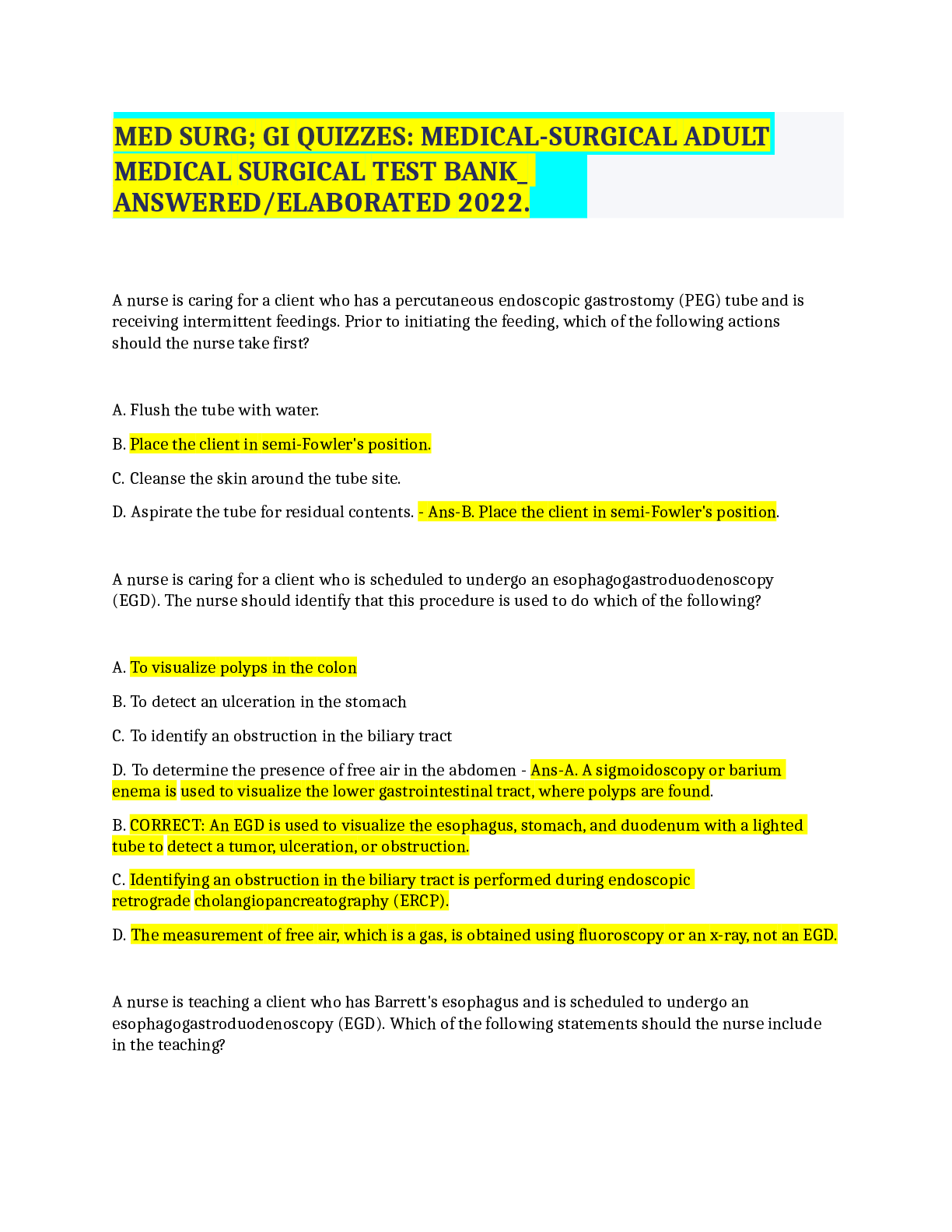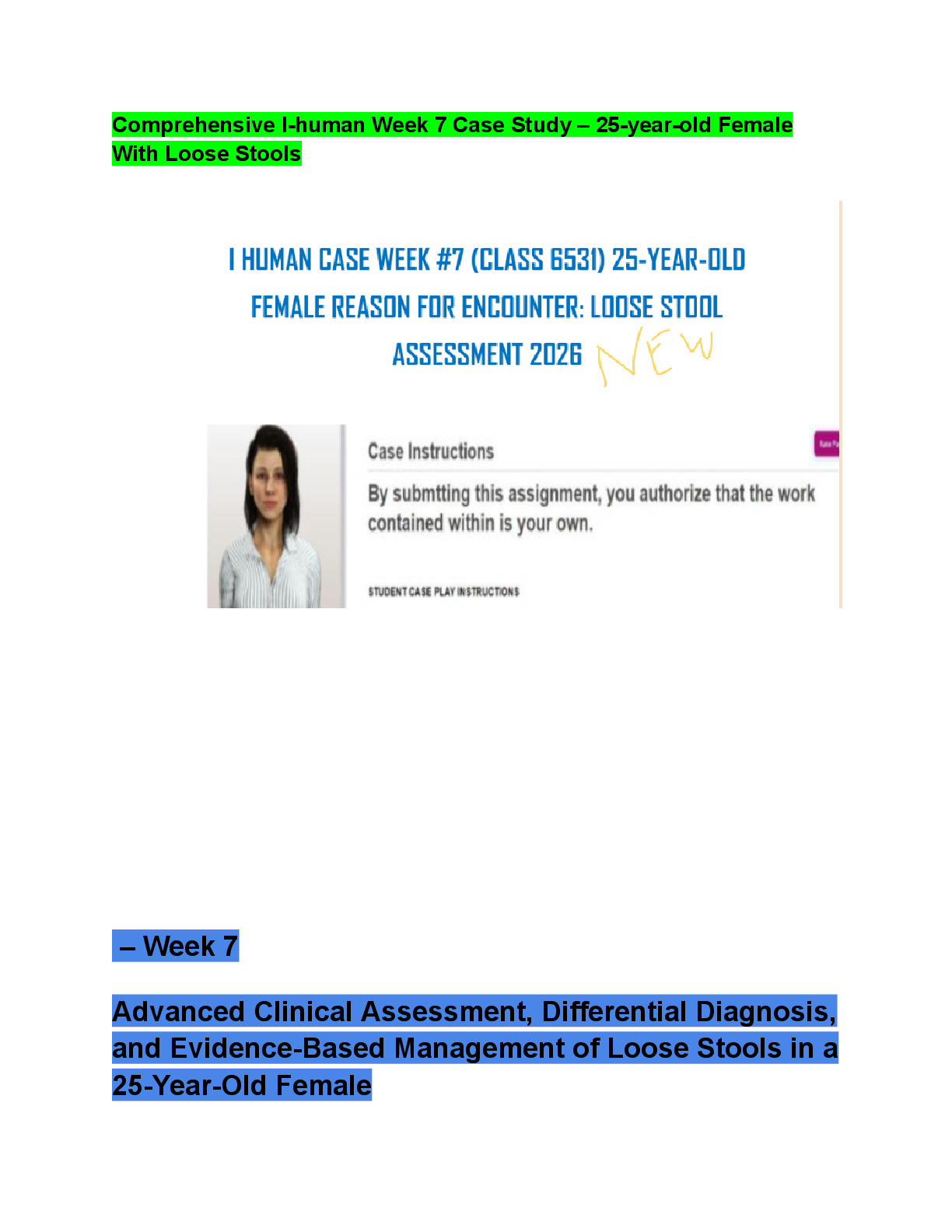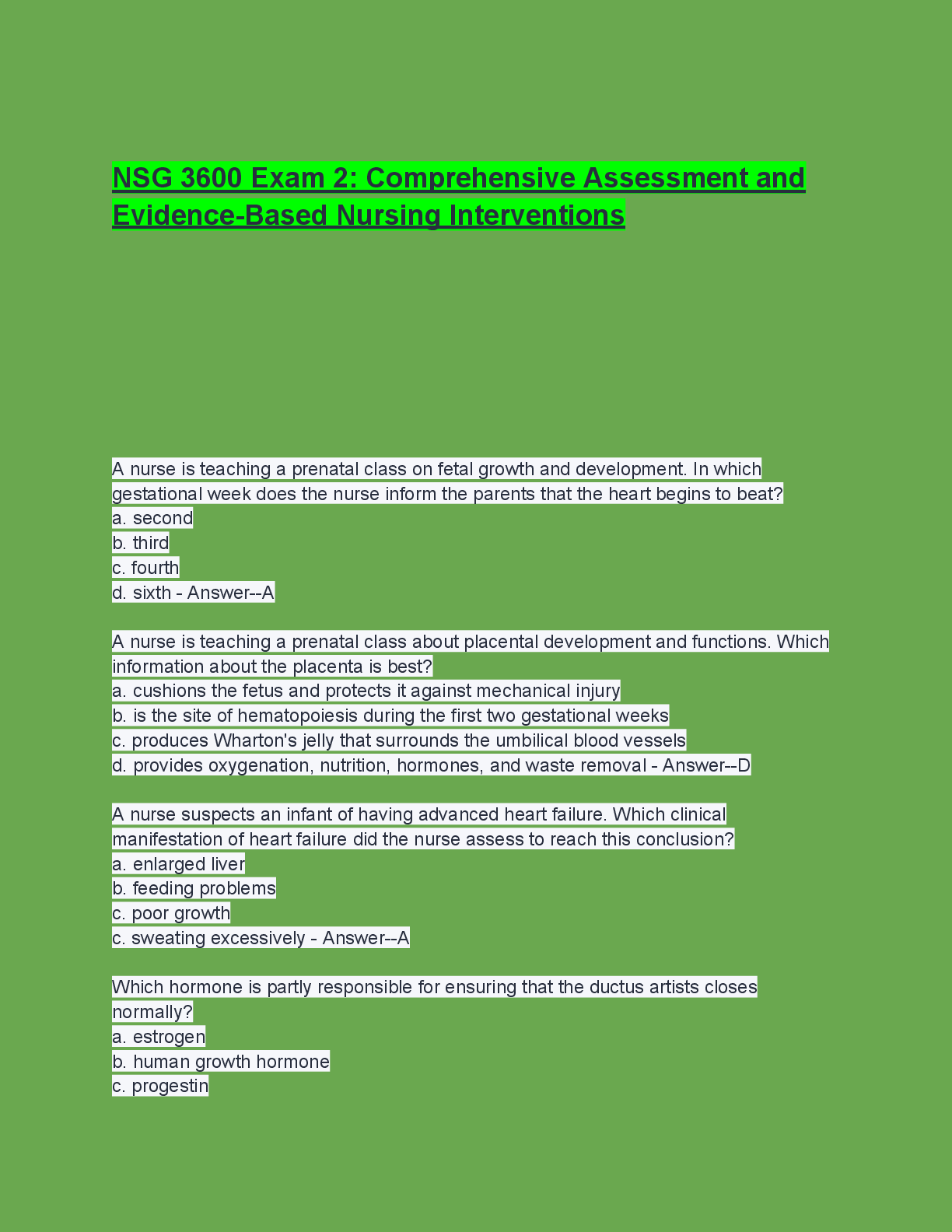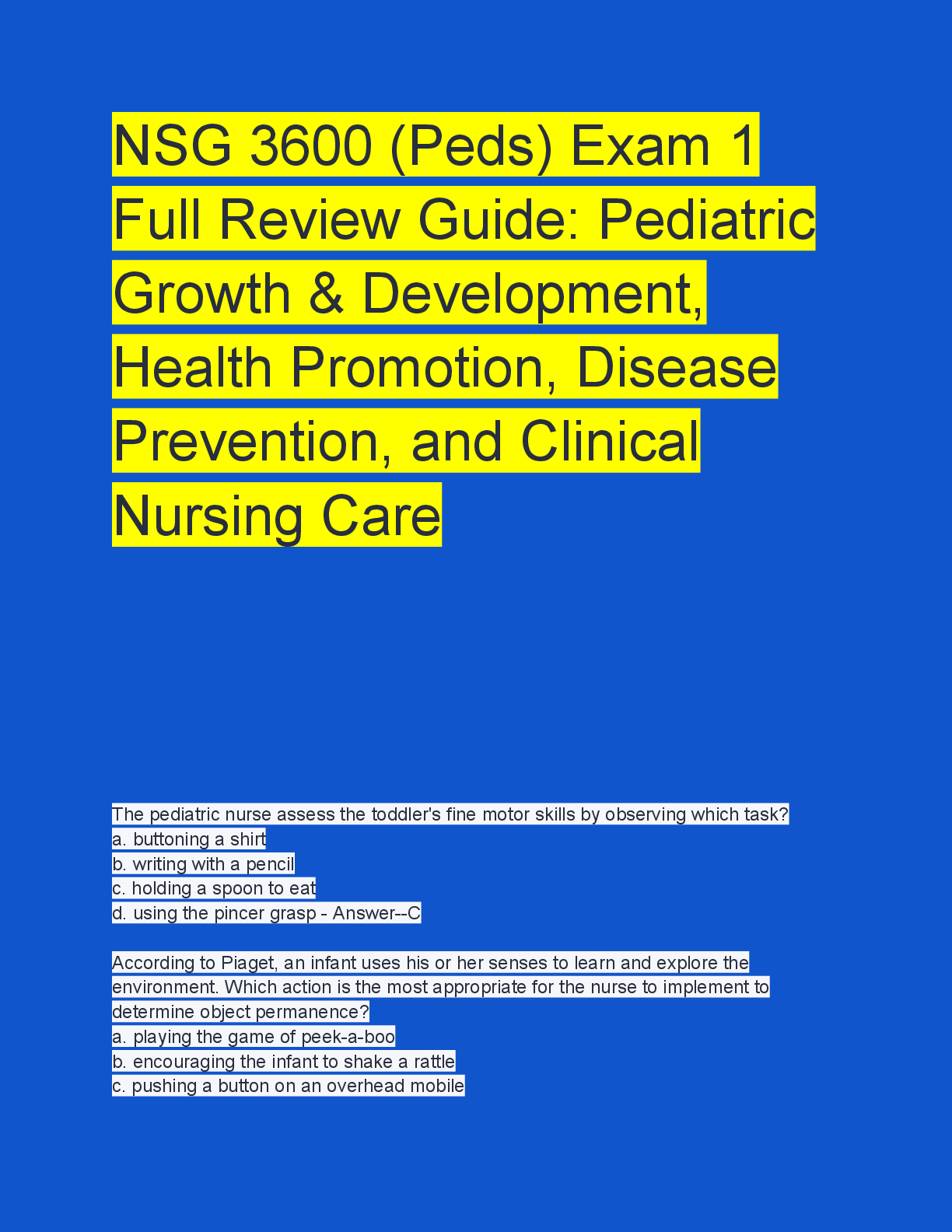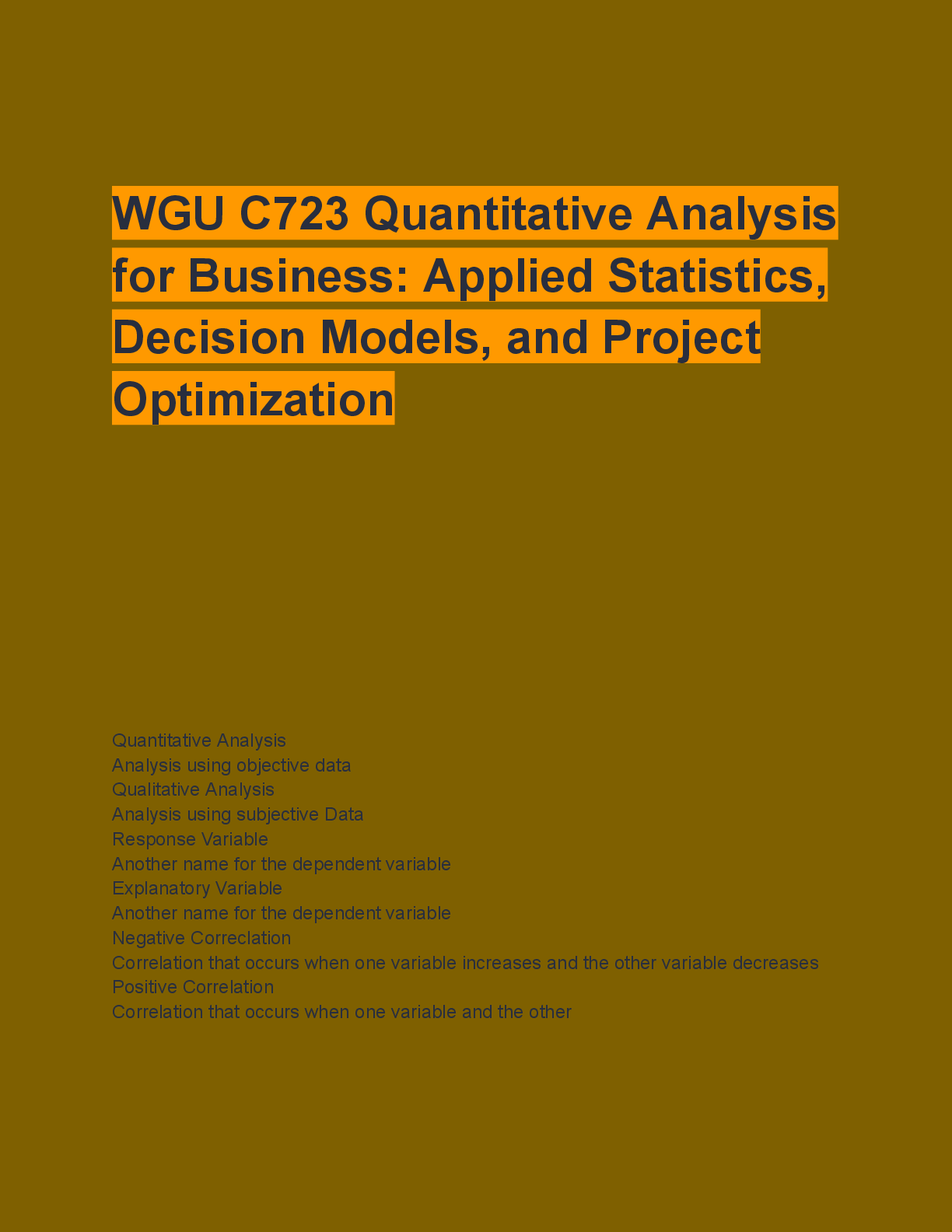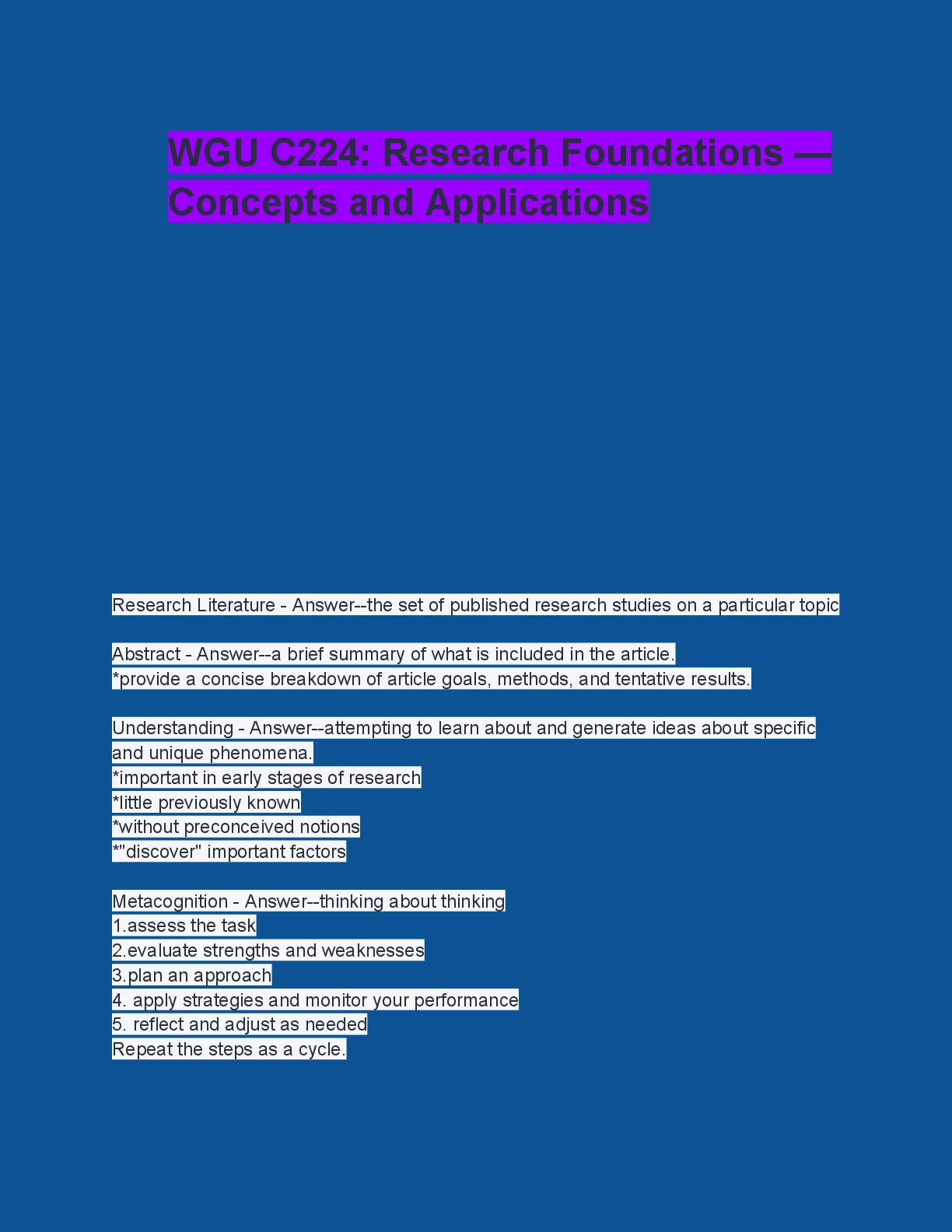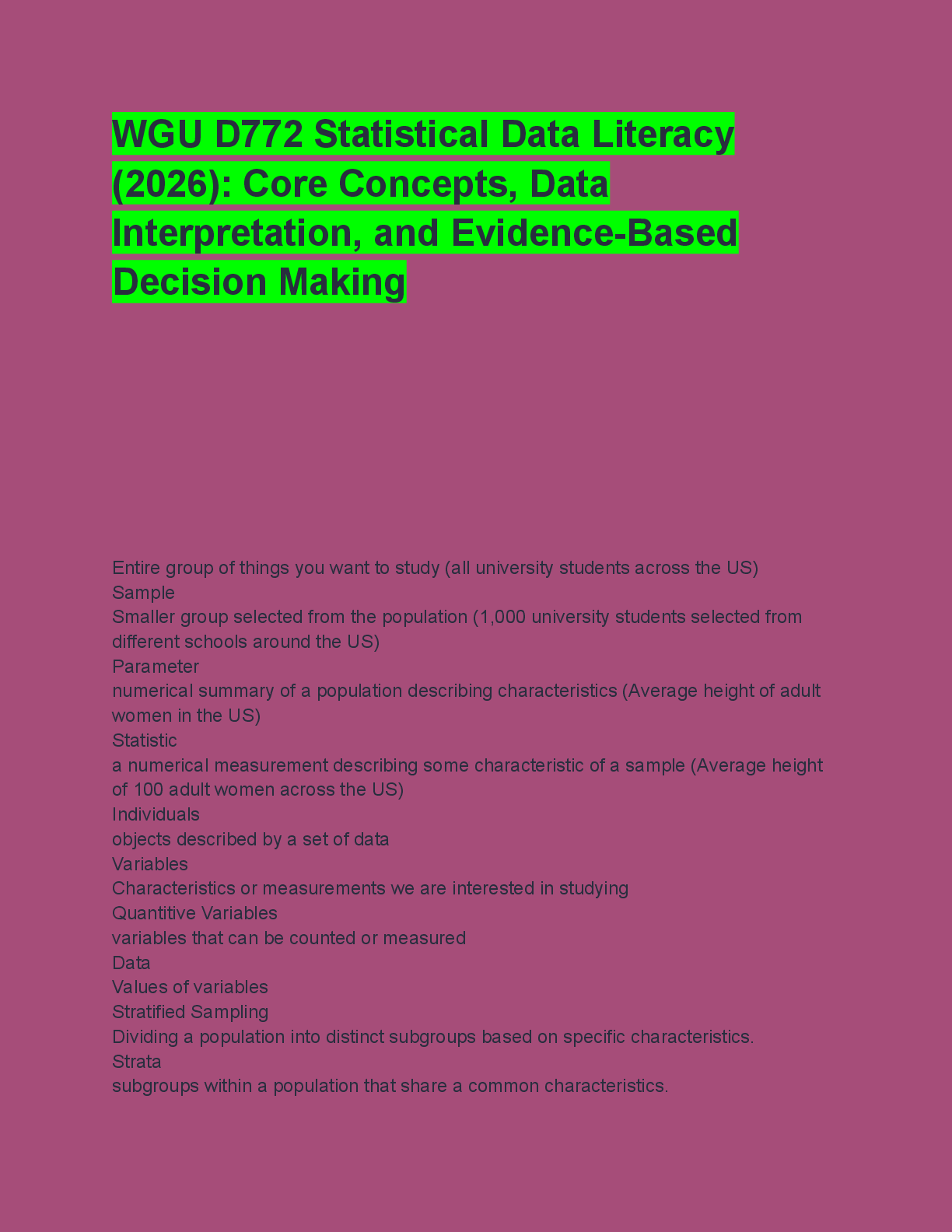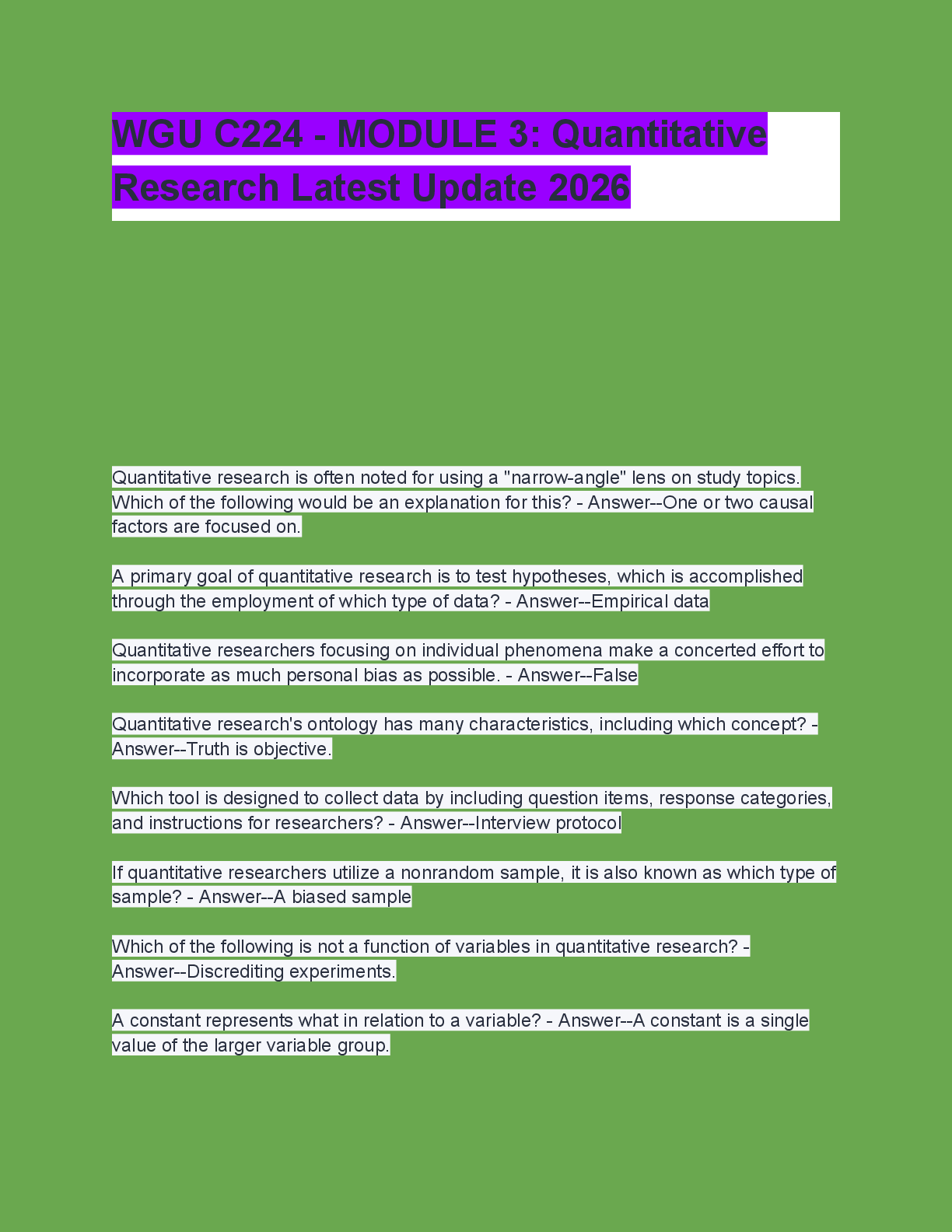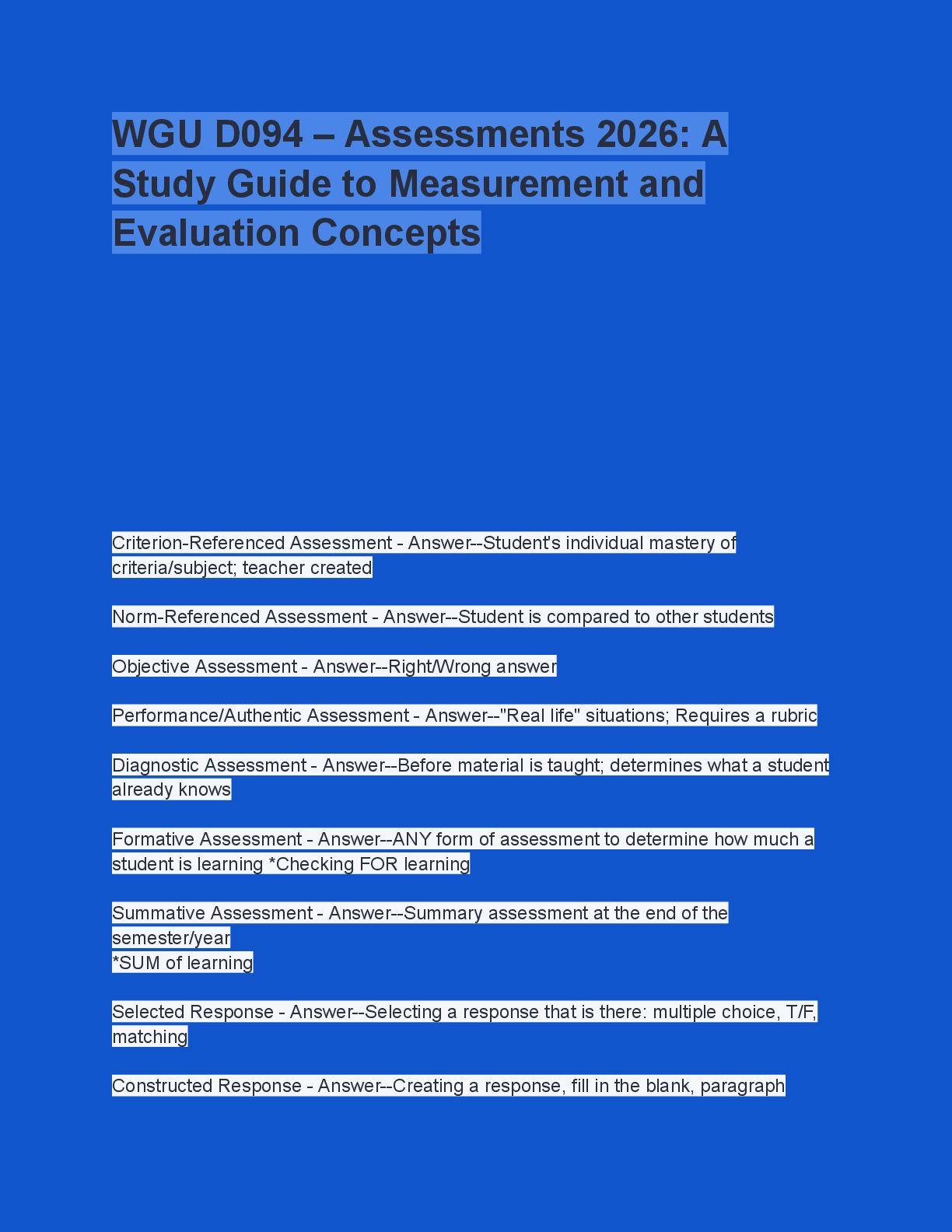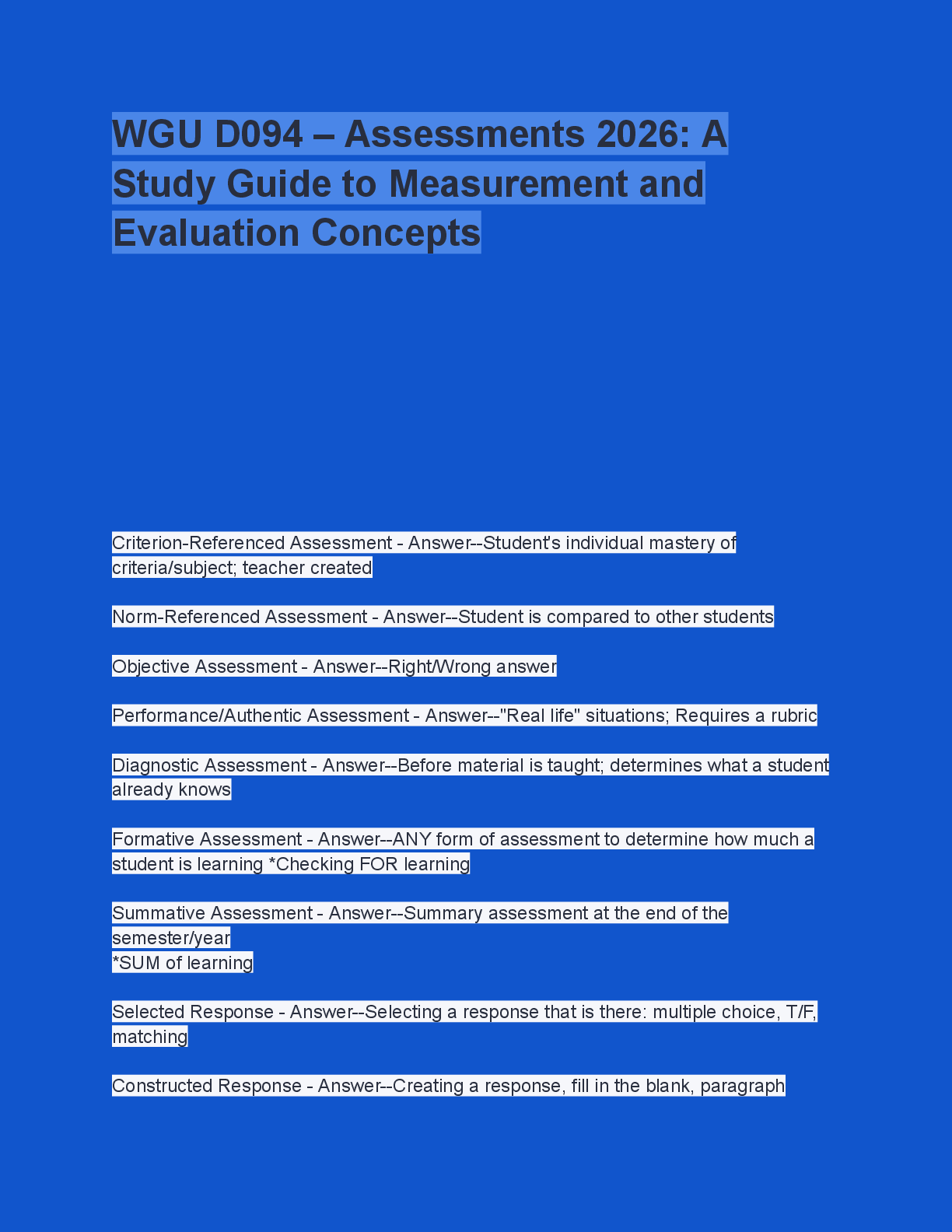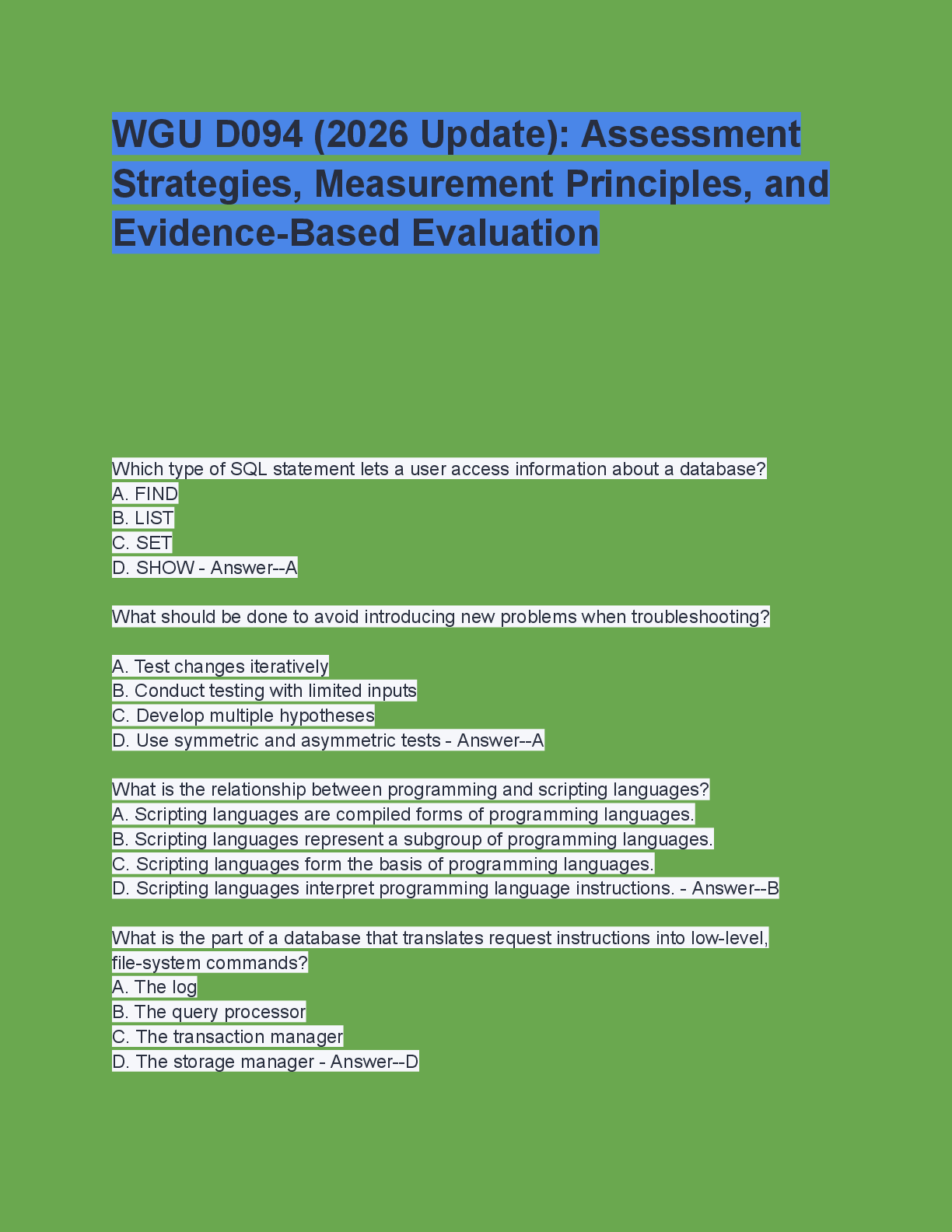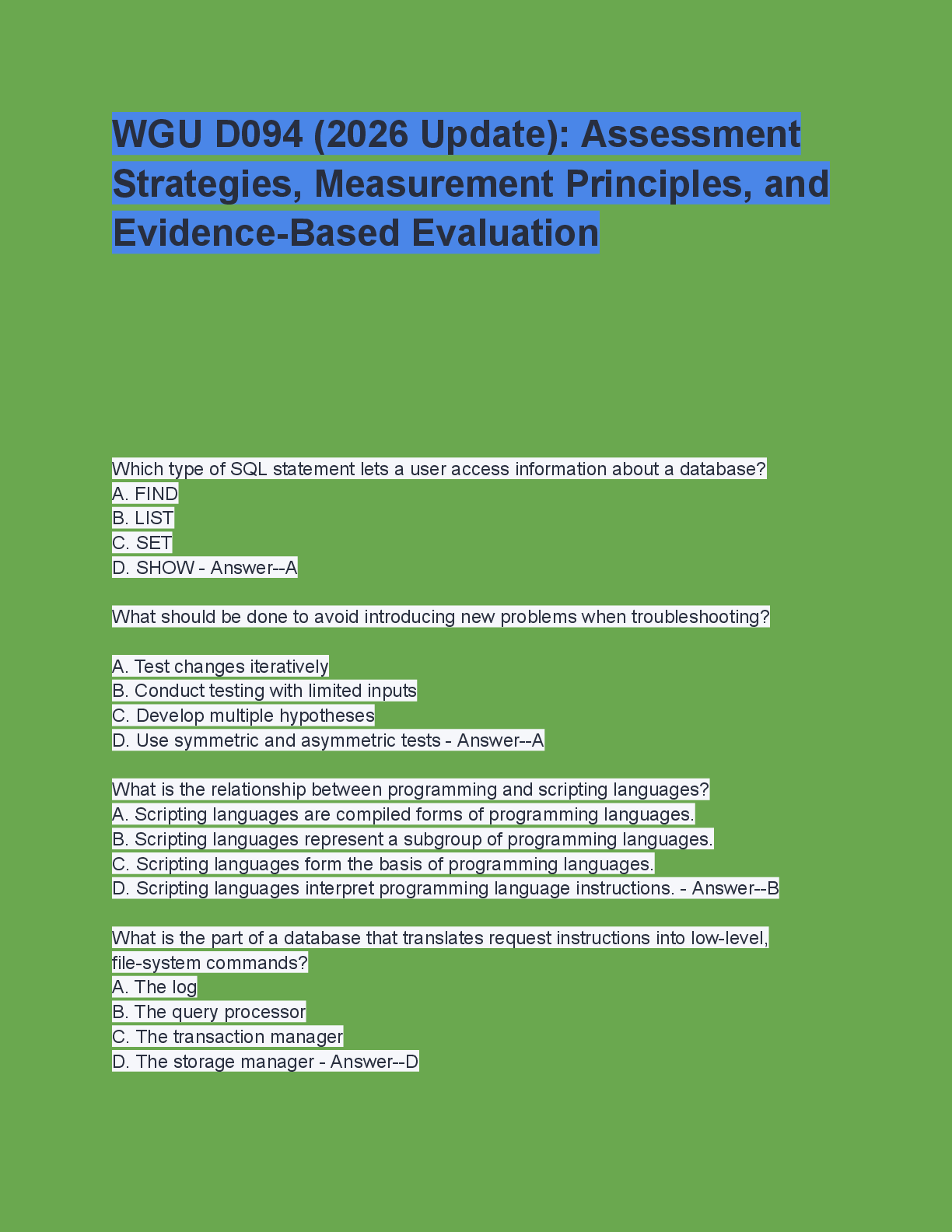Health Care > EXAM > CHAPTER:9 DRUG THERAPY IN PEDIATRIC PATIENTS (All)
CHAPTER:9 DRUG THERAPY IN PEDIATRIC PATIENTS
Document Content and Description Below
Last updated: 2 years ago
Preview 1 out of 5 pages
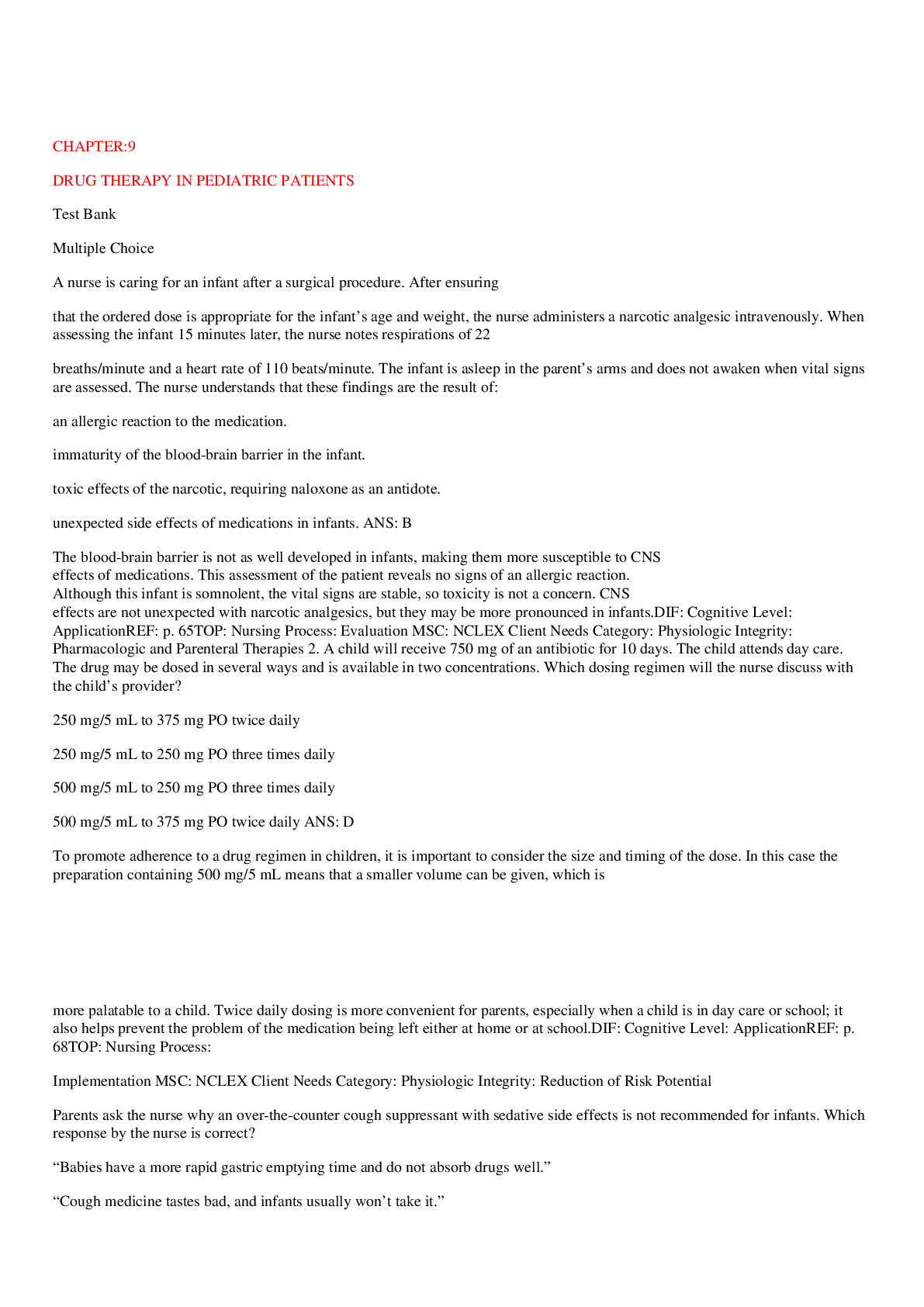
Buy this document to get the full access instantly
Instant Download Access after purchase
Buy NowInstant download
We Accept:

Reviews( 0 )
$7.00
Can't find what you want? Try our AI powered Search
Document information
Connected school, study & course
About the document
Uploaded On
Mar 15, 2023
Number of pages
5
Written in
All
Additional information
This document has been written for:
Uploaded
Mar 15, 2023
Downloads
0
Views
110









